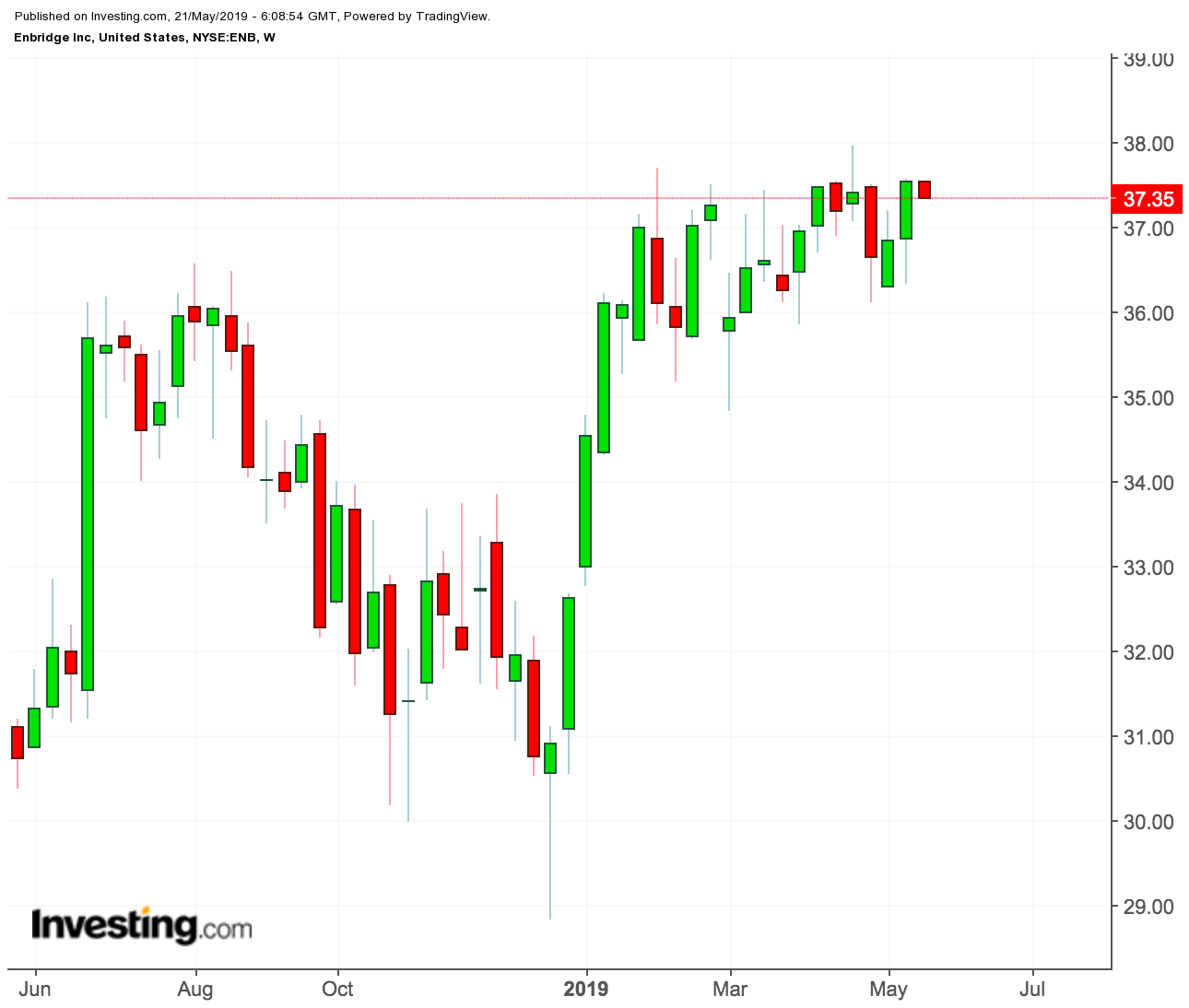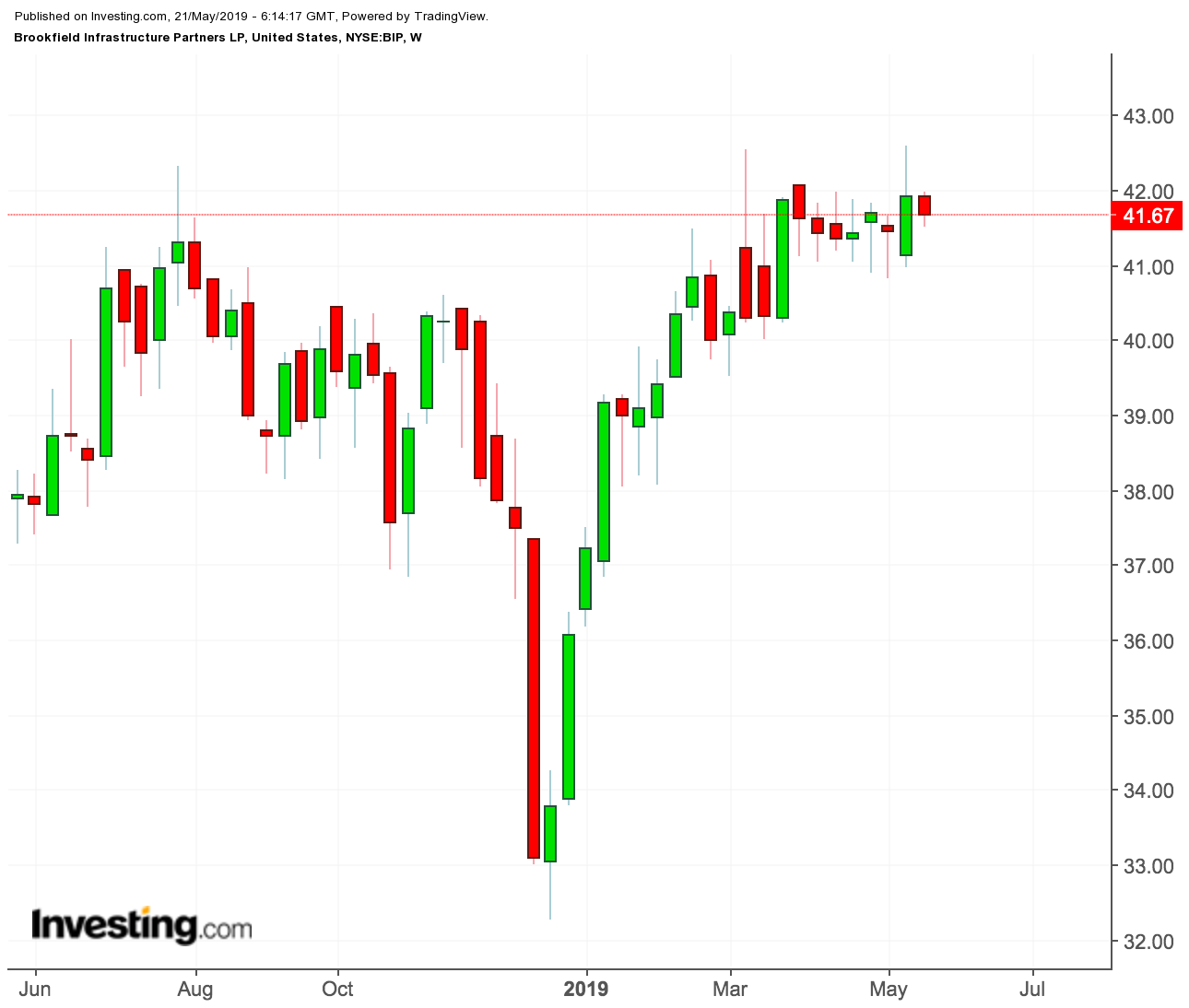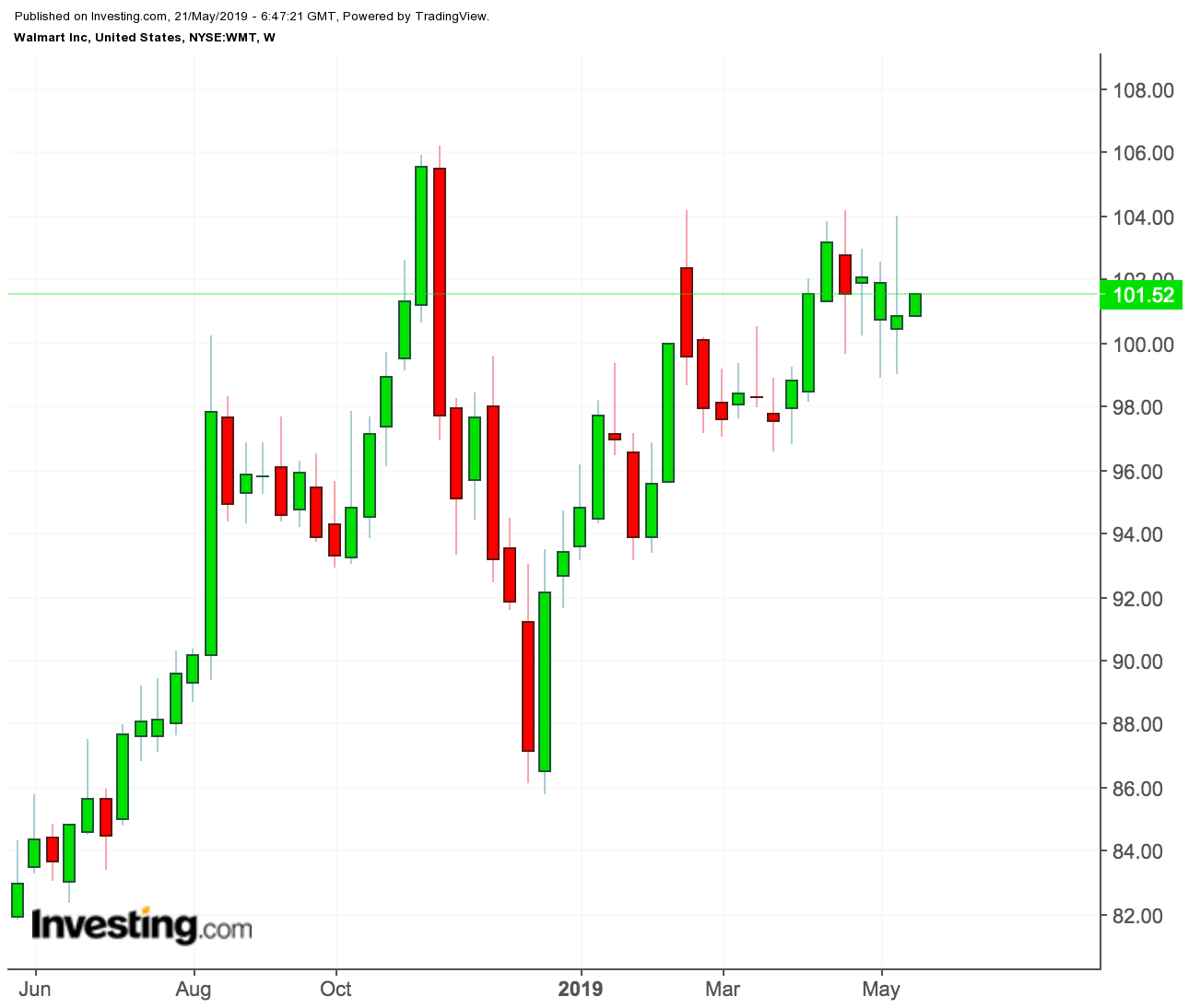Investing in stocks has always been risky when compared with holding safe-haven government bonds or stashing money in a low-rate savings account. Equity investors expose themselves to a variety of market risks, the biggest of which are recession, earnings setbacks and rising inflation that prompts central banks to hike interest rates.
After a strong rally this year, the markets have entered uncharted territory where the escalating U.S.-China trade war has all it takes to derail this impressive run. The dispute, which many investors were expecting to be resolved by now, is lingering and creating mounting anxiety over how much worse it could get.
However, for those who want to be in the market for the long haul, while it's impossible to completely avoid risk, it is possible to minimize the risk. The best way to do this is to diversify your portfolio and include stocks that have low betas: equities that are less volatile than the overall stock market.
These stocks will still fall during a severe market downturn, but with less dramatic moves than high-growth players. They will also rebound quickly when a market correction occurs. Such stocks would include power and gas utilities, telecom operators, and discount retailers. Below are three examples that you might consider if you are looking to add some safety to your portfolio.
1. Enbridge Inc.
The largest pipeline operator in North America, Enbridge Inc (NYSE:ENB) could be a great defensive stock in any portfolio. The company is well-entrenched in the region’s energy supply-chain. Its vast infrastructure of pipelines handles 25% of crude oil transportation and 18% of natural gas shipments in North America.
After major restructuring in 2018, Enbridge is now a much more focused, leaner company, well positioned to deliver growing dividends to investors. Utilities like Enbridge have thousands of customers who pay charges regularly every month, and are highly unlikely to see their revenue affected if a recession hits.
98% of Enbridge's EBITDA comes from its regulated business. This is one of the biggest advantages of investing in regulated utilities, as cash flow certainty insulates your portfolio from the drastic impact of a downturn.
In a low interest rate environment, Enbridge’s 5.8% dividend yield looks quite attractive. The company pays around $0.55 a share in quarterly dividends that it plans to increase by 10% each year. Its stock, trading at $37.35 at yesterday's close, has gained over 20% this year, outperforming the S&P 500's +14% climb.

2. Brookfield Infrastructure Partners
Toronto-based Brookfield Infrastructure Partners LP (NYSE:BIP) is another high-yielding stock that could provide some stability in the event of high market volatility. BIP owns and operates utilities, transport, energy, and communications infrastructure companies globally and manages a portfolio of about $30 billion with assets spanning five continents.
These include utilities and power transmission systems in North and South America, 37 ports in North America, the U.K, Australia and Europe, approximately 3,800 kilometres of toll roads in South America and India, and large rail operations in Australia and South America.
The company’s objective is to generate a long-term return of 12% to 15% on equity and provide sustainable distributions for investors while targeting annual distribution growth of 5-9%.
According to Brookfield, its strategy is to acquire high quality businesses on a value basis, actively manage operations and opportunistically sell assets to reinvest capital into the business.
When you look at the numbers, there is no doubt that the company has been successfully executing its plan. Since 2008, it has delivered compounded annual total returns of 15%. Up more than 20% this year, BIP stock still looks attractive, especially with a dividend yield close to 5%.

3. Walmart Inc.
One way to better position your portfolio during times of market distress is to include companies that produce or sell products and services that are crucial to our daily lives. Giant retail companies fit this profile well. The logic: in times of economic recession, you may cut your fine dining budget, but there's little chance you'll scrimp on basic grocery shopping.
This built-in protection makes the world’s largest brick-and-mortar grocer, Walmart Inc (NYSE:WMT), a great defensive stock. Currently trading at $101.52, Walmart may not have too much upside left after rallying more than 10% this year, but its latest earnings report suggests it is doing many things right to cope with the growing threat of competition from Amazon (NASDAQ:AMZN).

The big-box giant’s comparable sales in Q1 expanded 3.4% from a year earlier—its strongest performance on that metric in nine years—while online sales jumped 37% from a year ago. The earnings momentum that started in 2015 has become a new normal for Walmart, making the stock a good long-term bet.
Walmart’s rock-solid dividend is an added benefit. With a yield of 2.1% and a quarterly payout of $0.53, this stock is a good choice to own through the market's thick and thin activity. The company has an impressive track record when it comes to returning cash to its investors.
Bottom Line
Buying stable dividend stocks is a winning strategy when volatility spikes and risks to economic growth are on the rise. Enbridge, BIP and Walmart fit nicely into this defensive strategy. You can rely on their growing payouts, while markets correct themselves and find a new equilibrium.
